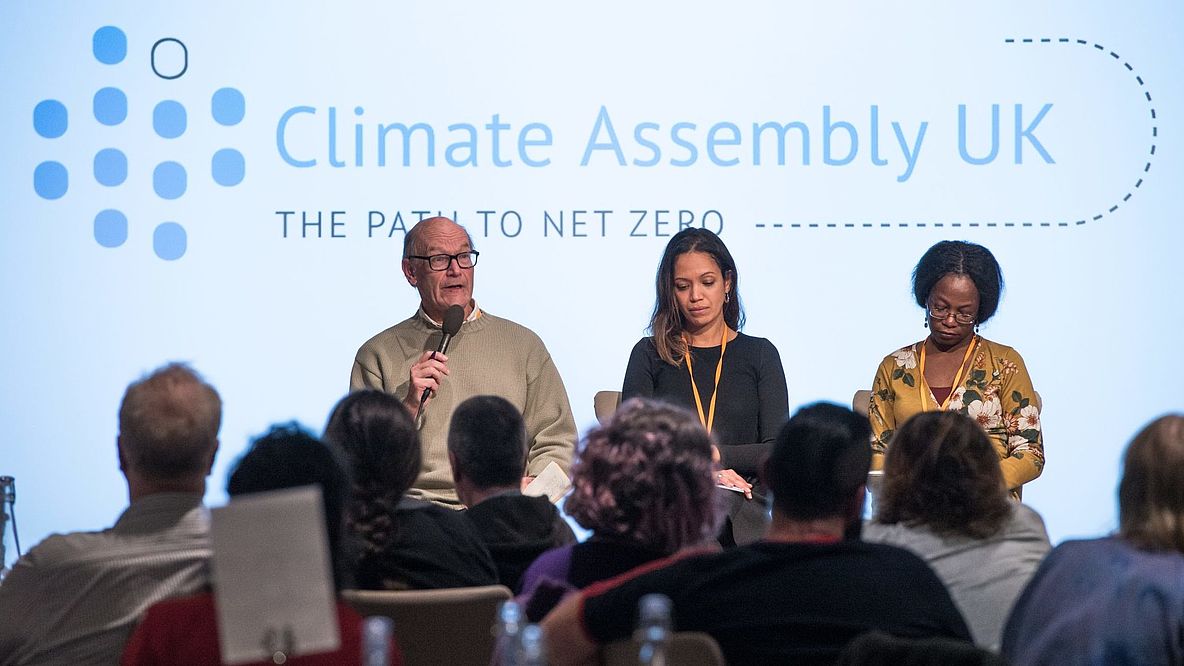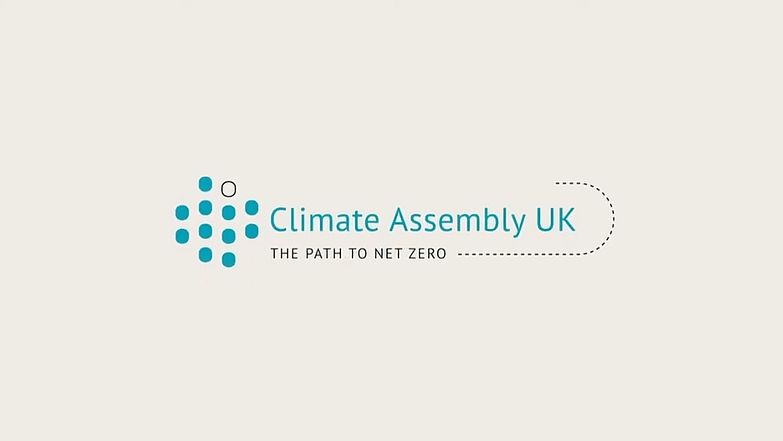Climate Assembly: "An example to us all"

A frequent flyer tax, phasing out polluting SUVs and restricting cars in city centres are among the solutions to the climate crisis proposed by the UK Climate Citizens' Assembly "NetZero UK". The climate policy recommendations of the randomly selected Citizens' Assembly were presented on 10 September 2020.
The task of the Citizens' Assembly was to make proposals on how the UK can become climate neutral by 2050. The Citizens' Assembly was made up of 108 people from all walks of life who spent a total of around 600 hours in six sessions over several days discussing how to reduce greenhouse gas emissions.
Making the most of the Corona crisis
In the process, 79 per cent of Citizens' Assembly members agreed with the statement that measures to support the economy in and after the Corona Crisis must be designed in such a way that they contribute to achieving the goal of climate neutrality in 2050.
Key recommendations:
- a frequent flyer levy for people who fly the farthest and most often
- increased government investment in low-carbon buses and trains.
- a rapid switch to electric vehicles
- a ban on the sale of highly polluting vehicles such as SUVs
- subsidies for the purchase of low-CO2 cars
- Reduce the number of cars by 2 - 5 per cent per decade.
- Make wind and solar energy a key factor in the UK achieving carbon neutrality
- more sourcing of local produce and a promotion of local food production
- A change in diet - driven by education - to reduce meat and dairy consumption by 20 to 40 per cent
"Fair measures"
Any measures to reduce emissions must be applied fairly, the assembly members write in their report. "Fair to people with jobs in different industries. Fair to people with different incomes, travel preferences and housing conditions. Fair to people living in different parts of the UK."
A key theme of the report is education. "The media has a role to play - including schools. Maybe we need to look at the curriculum," said assembly member Ibrahim, a Surrey GP. "You can't go to someone and say, 'You need to switch to a hydrogen boiler because it's low CO2' when they don't know anything about it. You are more likely to be accepted by people if they understand them problems," Ibrahim continues.
Education and advertising
"The government can't legislate against eating meat," said assembly participant Amanda, "but with education, advertising and labelling I believe we can change their attitudes to eating meat - just as we did with smoking."
The chairs of the six House of Commons parliamentary committees that commissioned the Citizens' Assembly climate report have written to Prime Minister Boris Johnson urging him to ensure that the government follows up on the UK Climate Group's recommendations by "showing leadership at the highest levels of government" ahead of the UK hosting the COP26 UN climate summit in November 2021.
A mirror of the people
"The range of voices on these pages reflects our population. The fact that Citizens' Assembly members were able to make clear recommendations while respecting each other's values and experiences is an example to us all," said Darren Jones MP, Chair of the House of Commons Business, Energy and Industrial Strategy Committee.
Parliament considered the recommendations of the Climate Assembly on 25 November 2020. In a statement, MPs welcomed the Citizens' Assembly report and called on the government to address it. The UK government published its response to the Citizens' Assembly on 2 September 2021. In it, it presented its previous and planned climate protection measures, but did not address the individual recommendations for action of the Climate Assembly. This was criticised by the Business, Energy and Industrial Strategy Committee, among others.
More Information
